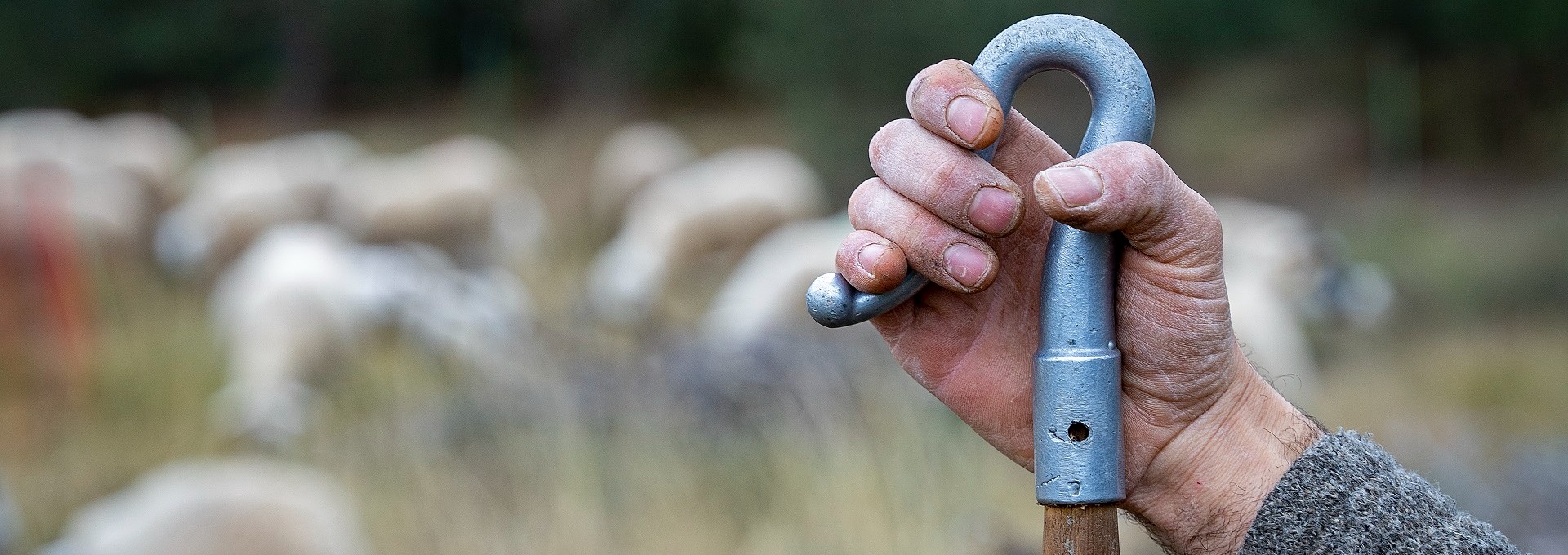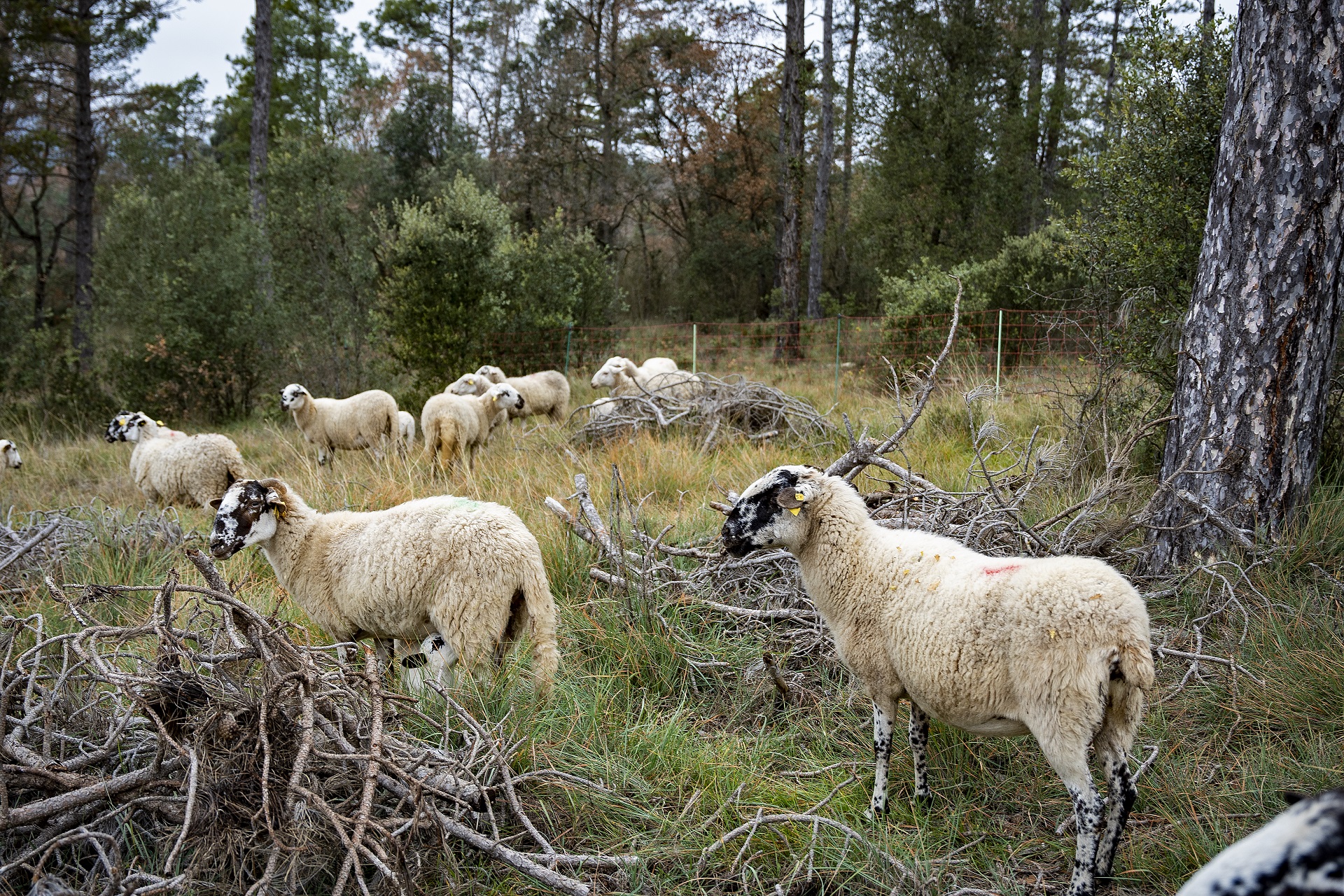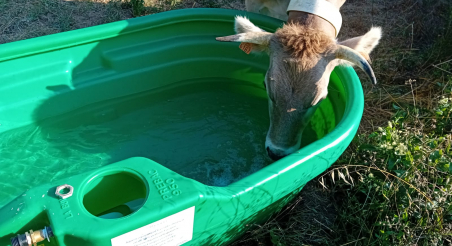The School of Shepherds and Shepherdesses of Catalonia has successfully celebrated its 15th anniversary, an event that symbolizes a decade and a half of commitment to training, the preservation of the pastoral heritage and the sustainable development of the territory. This school, a pioneer in Catalonia, has had quantitative and qualitative support from the Barcelona Provincial Council since 2018.
The celebratory party took place this past Saturday, September 30, at the old rectory of Enviny, in the municipality of Sort and, during its course, diplomas were awarded to the graduates of the edition of this year, who have satisfactorily completed the training course in shepherding and silvopastoral management.
The School of Shepherds and Shepherdesses is a unique initiative in Catalonia that aims to train people with the technical ability to develop silvopastoral activity in a viable and profitable way, and who with their profession contribute to facing the new global challenges such as forest fire risk and climate change. Since its creation, the school has trained nearly 250 people, many of whom have started or continued livestock projects in the territory. According to data provided by the school, 63% of its students currently work in the sector and, of these, 65% are located in the Barcelona districts.
Decisive support of the Barcelona Provincial Council
The Territorial Agrarian Directorate (DTA) of the Barcelona Provincial Council has supported the School of Shepherds and Shepherdesses of Catalonia since 2018, both quantitatively and qualitatively. Specifically, the corporation has subsidized the school with 20,000 euros per year. In addition, it has funded or collaborated with the school in several specific programs or initiatives, such as the organization of courses, conferences and talks, and the development of guides and manuals on the subject, such as "The importance of being a shepherd: Small guide to extensive livestock farming”. Likewise, experts from the DTA have participated in the school's courses, giving training and talking about the actions carried out by the Barcelona Provincial Council concerning extensive livestock farming.
These quantitative and qualitative grants have contributed to the development and success of the school, and have had a significant impact at the local and county levels. Among the most outstanding results, it is necessary to mention the interest in the profession and the sector of extensive cattle breeding in schools and institutes of the Montserrat Rural Park, as well as by the students of the Manresa Agricultural School and the applicants of the Network of Land Banks.
With its support for the school, the Barcelona Provincial Council has pursued several specific objectives or results, such as spreading the profession of shepherd and the importance of extensive livestock farming in the Barcelona province, promoting new activities linked to the sector and the employment generation, creating and sharing knowledge around silvopastoral activity and disseminating the functions and values of silvopasture.
Thanks to this support, the local or rural community of the Barcelona districts has benefited from the training and work of some livestock farmers and shepherds who have opted for this professional activity, which contributes to the prevention of forest fires and the generation of local agri-food products.
The Barcelona Provincial Council has plans to continue collaborating with the school in the future and is thinking of working to prepare some European projects aimed at exchanging experiences with other regions of Europe. The corporation values very positively the importance of pastoral and agro-environmental education for the sustainable development of the territory and recognizes the work of the school as a benchmark in this field.
Fireproof woods
As highlighted by "Fireproofed", the sixth BCN Smart Rural Data Digest, the demarcation of Barcelona is very close to having enough animals grazing extensively to reduce the amount of vegetation with potential fuel that accumulates in the forests and make their conservation more lasting. However, he also made it clear that it is necessary to encourage the presence of herds throughout the territory since 78% of farms in extensive grazing are concentrated in two Barcelona counties: Osona and Berguedà. With a forest area that exceeds 514,000 hectares and the growing challenges of global warming, the Barcelona Provincial Council is very concerned about the risk of large-scale forest fires. In this context, extensive animal husbandry is considered a key tool to protect forests from demarcation and ensure their long-term health.
For more information on the collaboration between the School of Shepherds and Shepherdesses of Catalonia and the corporation, you can write to Pere Navarro, territorial engineer of the Territorial Agrarian Directorate of the Barcelona Provincial Council.
— BCN Smart Rural Editorial —
Resources
Sixth BCN Smart Rural Data Digest
"Fireproofed: A look at the state of the agroforestry mosaic in the Barcelona province"




